Across China: Cactus cultivation boosts rural development in SW China
Source: Xinhua
Editor: huaxia
2025-09-04 13:05:30
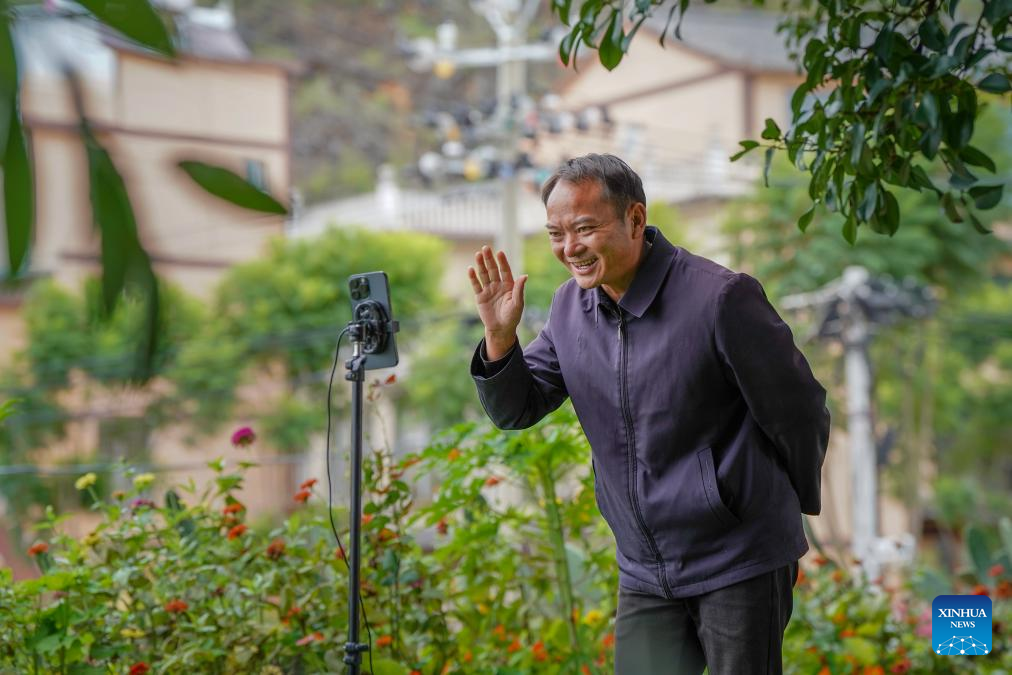
Lu Chunhong, head of Zhuangzitian Village, promotes cactus products via live streaming at Zhuangzitian Village in southwest China's Yunnan Province, Aug. 7, 2025. (Xinhua/Peng Yikai)
KUNMING, Sept. 4 (Xinhua) -- Once a village with little industry and few means of livelihood, Zhuangzitian in southwest China's Yunnan Province has blossomed into the country's largest hub of cactus cultivation, boasting the highest output value in the country.
Earlier this month, 20 tonnes of edible cactus leaves were exported from the village to Southeast Asian countries, marking China's first-ever shipment of edible cactus abroad.
In the past, rocky desertification from the karst landscape left 80 percent of the village's land barren, driving most young people to seek work elsewhere. Yet on the white rocky hills, cacti have thrived for more than 200 years, growing with remarkable resilience.
The cactus's ability to thrive in poor soil and withstand drought makes it a natural savior for the rocky, desertified mountains. Its thick leaves are packed with dietary fiber, minerals and vitamins, finding wide use in food and beverages, medicine, and cosmetics.
Lu Chunhong, the village head, recognized the market potential of cacti. After years of working elsewhere, he returned to his hometown and, in 2019, took up the role of village head, leading the entire community in cultivating cacti.
"In the past, villagers were neither united nor proactive in developing industries," Lu said, adding that his main focus now is to bring the community together.
In 2021, under Lu's leadership, the village set up a collective company, contributing all village land as shares and turning residents into shareholders to jointly cultivate cacti. Roads were also built up the mountains, supporting the expansion of cactus plantations.
In 2022, the cacti bore fruit, with 1,500 mu (100 hectares) of cacti producing 260 tonnes of fresh fruit, generating sales revenue exceeding 5 million yuan (about 696,900 U.S. dollars). The villagers not only repaid their road construction debts but also expanded cactus cultivation by an additional 1,500 mu.
The industrial chain is also continuing to expand. In 2023, Yi mu Liang tian (Yunnan) Agricultural Investment Co., Ltd. set up operations in the village, launching a full industrial chain for edible cactus.
Today, more than 10 cactus-based products, including dried fruit, enzymes and beer have been developed. Even the spines, once considered waste, are now crafted into handicrafts, achieving full use of the entire plant.
The comprehensive development of the industrial chain has greatly boosted local employment. According to Chen Xiaoke, general manager of the company, it has directly created over 1,000 jobs and indirectly helped 36,000 farmer households increase their income, with their annual income rising from 32,000 yuan in 2021 to 103,000 yuan in 2024.
In 2024, the village collectively planted over 5,000 mu of cacti. The comprehensive output value of the industrial chain soared to 17.32 million yuan, with cactus leaves, flowers, honey oil and derivative products jointly forming a diverse income structure.
Meanwhile, the industrial model has continued to evolve, deeply integrating cactus cultivation with Yi ethnic culture and rural leisure. In July this year, the village hosted its first cultural tourism festival centered on cacti, drawing more than 40,000 visitors from across the country.
"We aim to transform the cactus industry from merely selling fruit to offering an experience of ecology and culture," said Lu, radiating confidence in the future of the industry and the village.
The first export of cacti has also marked a new milestone for Zhuangzitian's cactus industry. Zhang Hongye, chairman of the company, said the successful shipment has strengthened confidence in expanding into overseas markets.
"Japan is the next target market for cactus exports. We are also engaging with local buyers and aiming to achieve new breakthroughs as soon as possible," Zhang added. ■
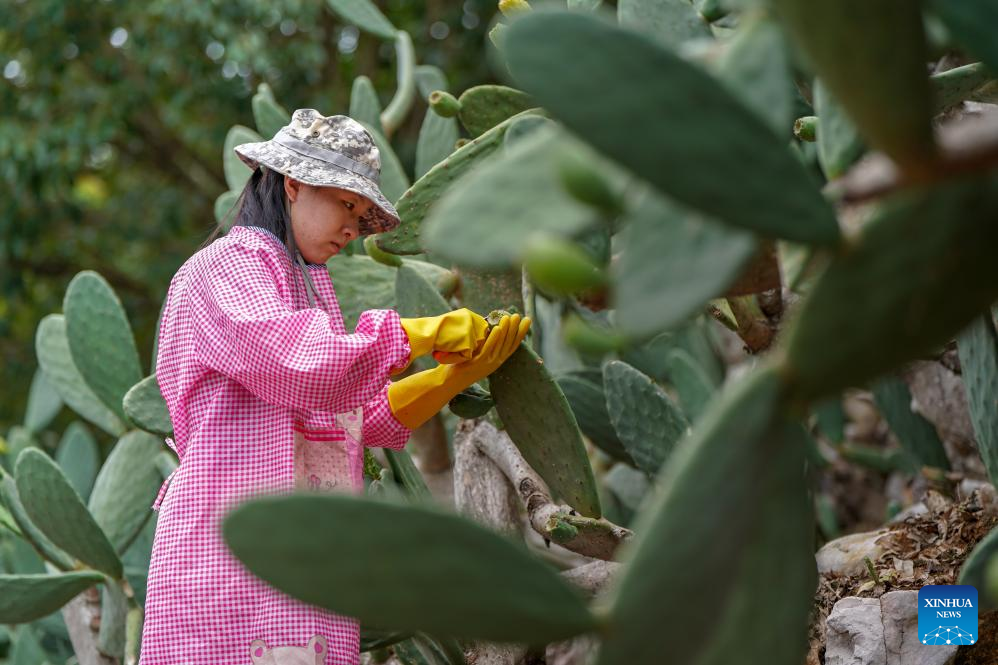
A villager works at a cactus planting base in Zhuangzitian Village, Wenshan City, southwest China's Yunnan Province, Aug. 7, 2025. (Xinhua/Peng Yikai)
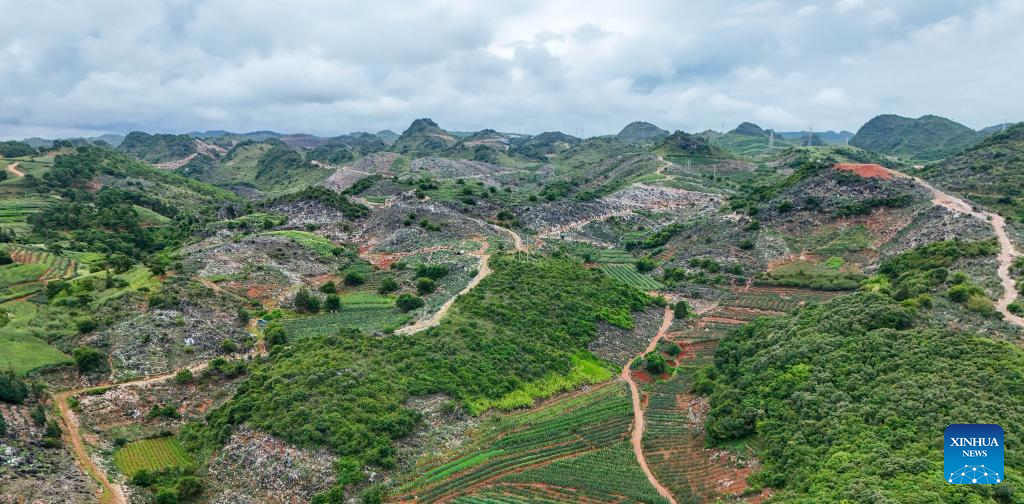
A panoramic aerial drone photo taken on Aug. 7, 2025 shows the cactus planting base at Zhuangzitian Village, Wenshan City, southwest China's Yunnan Province. (Xinhua/Peng Yikai)
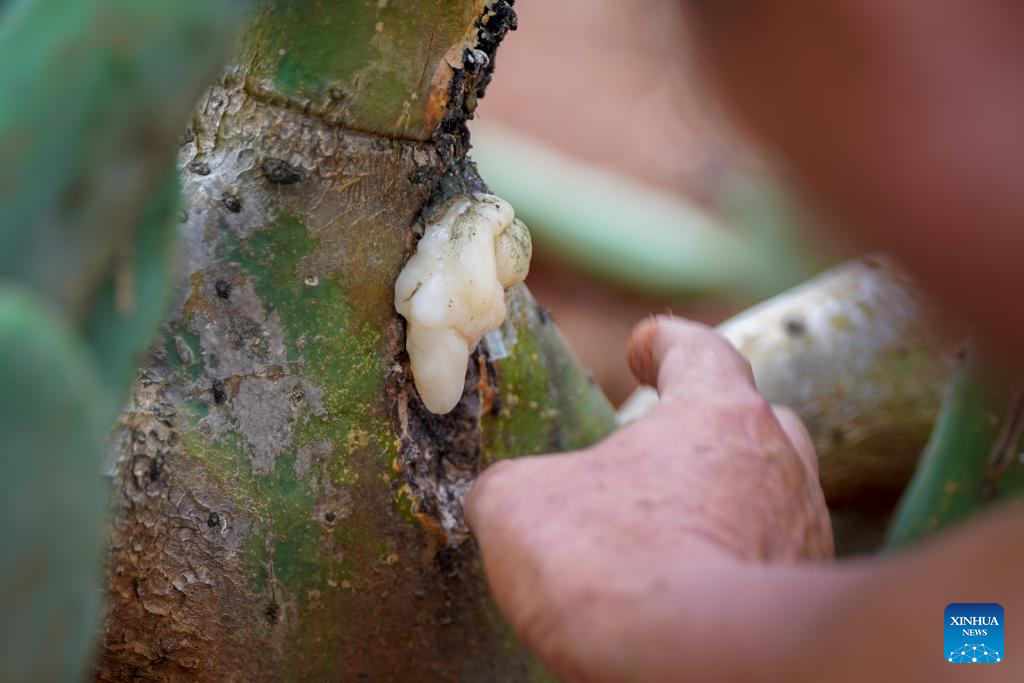
A villager works at a cactus planting base in Zhuangzitian Village, Wenshan City, southwest China's Yunnan Province, Aug. 7, 2025. (Xinhua/Peng Yikai)
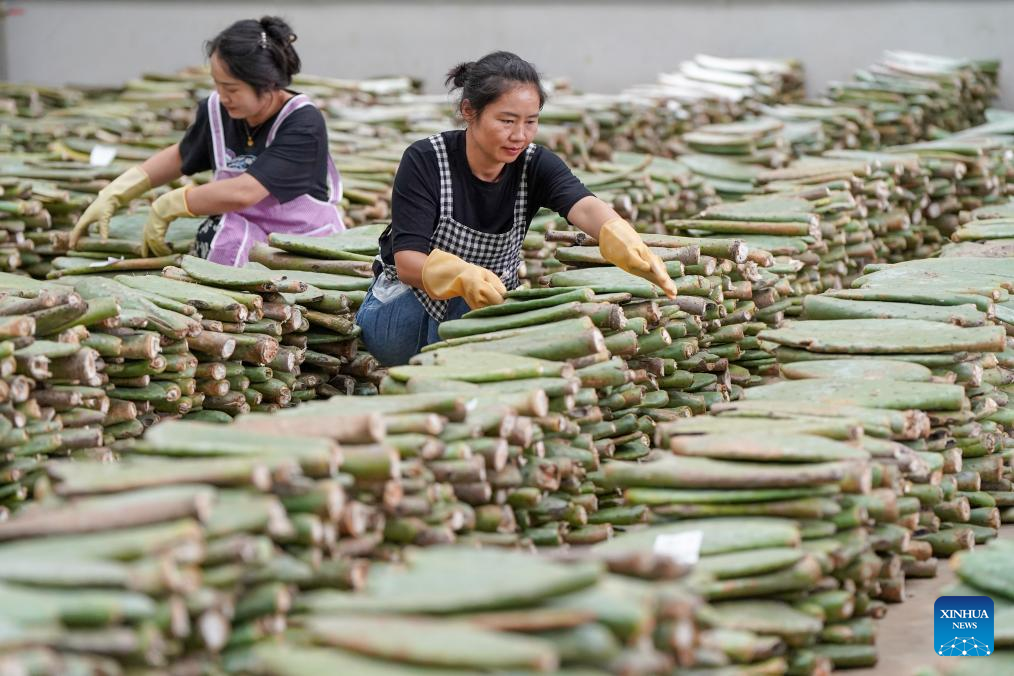
Villagers work at the cactus processing factory at Zhuangzitian Village in southwest China's Yunnan Province, Aug. 6, 2025. (Xinhua/Peng Yikai)
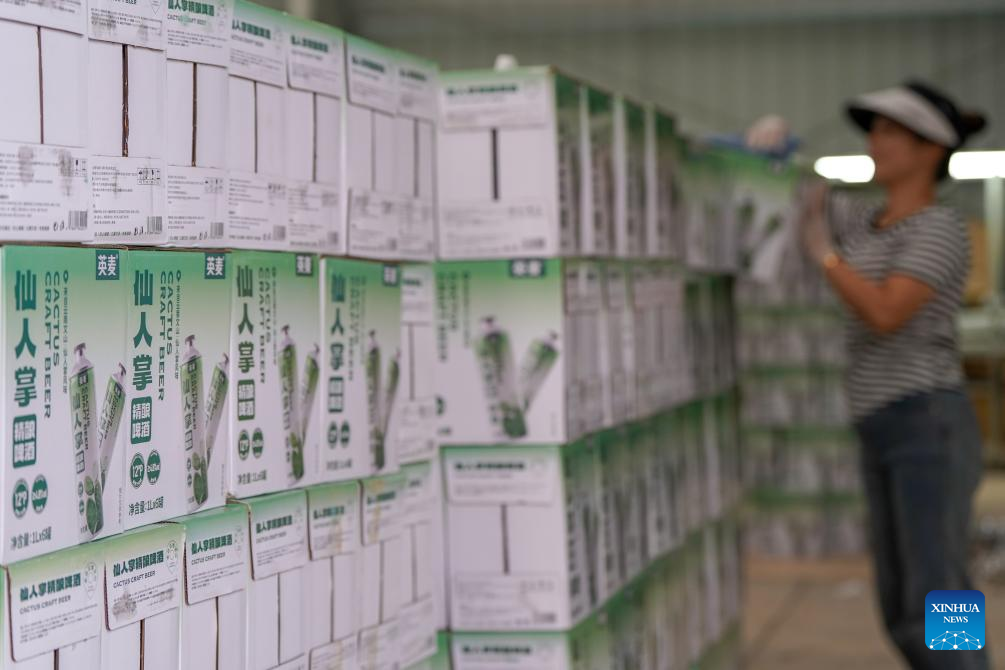
This photo taken on Aug. 6, 2025 shows cactus beer products at a factory of Zhuangzitian Village, Wenshan City, southwest China's Yunnan Province. (Xinhua/Peng Yikai)
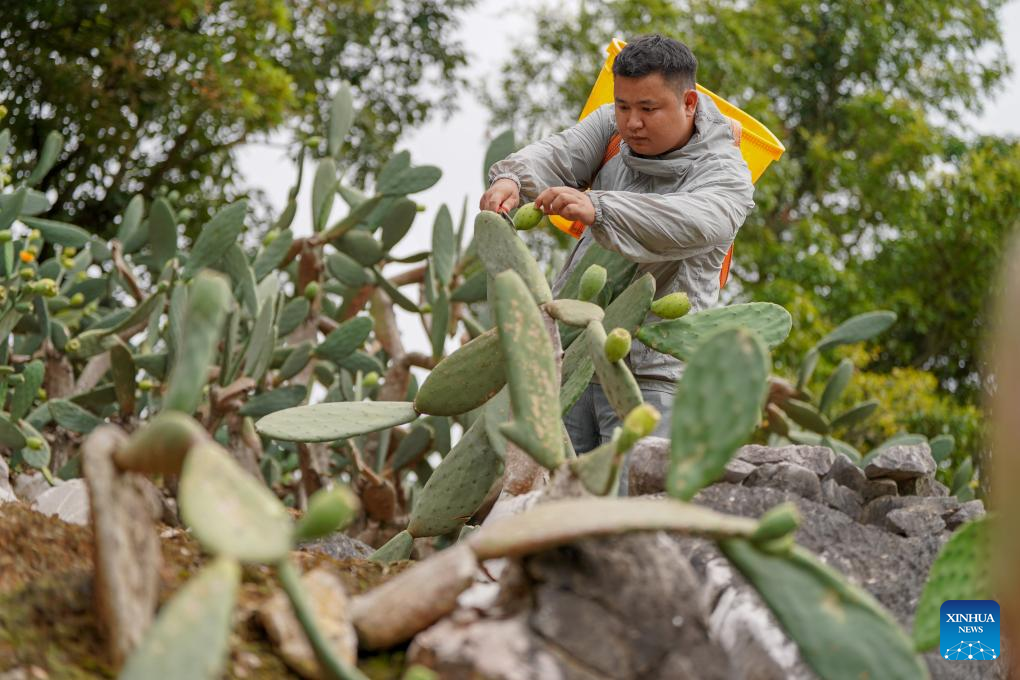
A villager harvests cactus fruits at the cactus cultivation base at Zhuangzitian Village in southwest China's Yunnan Province, Aug. 7, 2025. (Xinhua/Peng Yikai)



